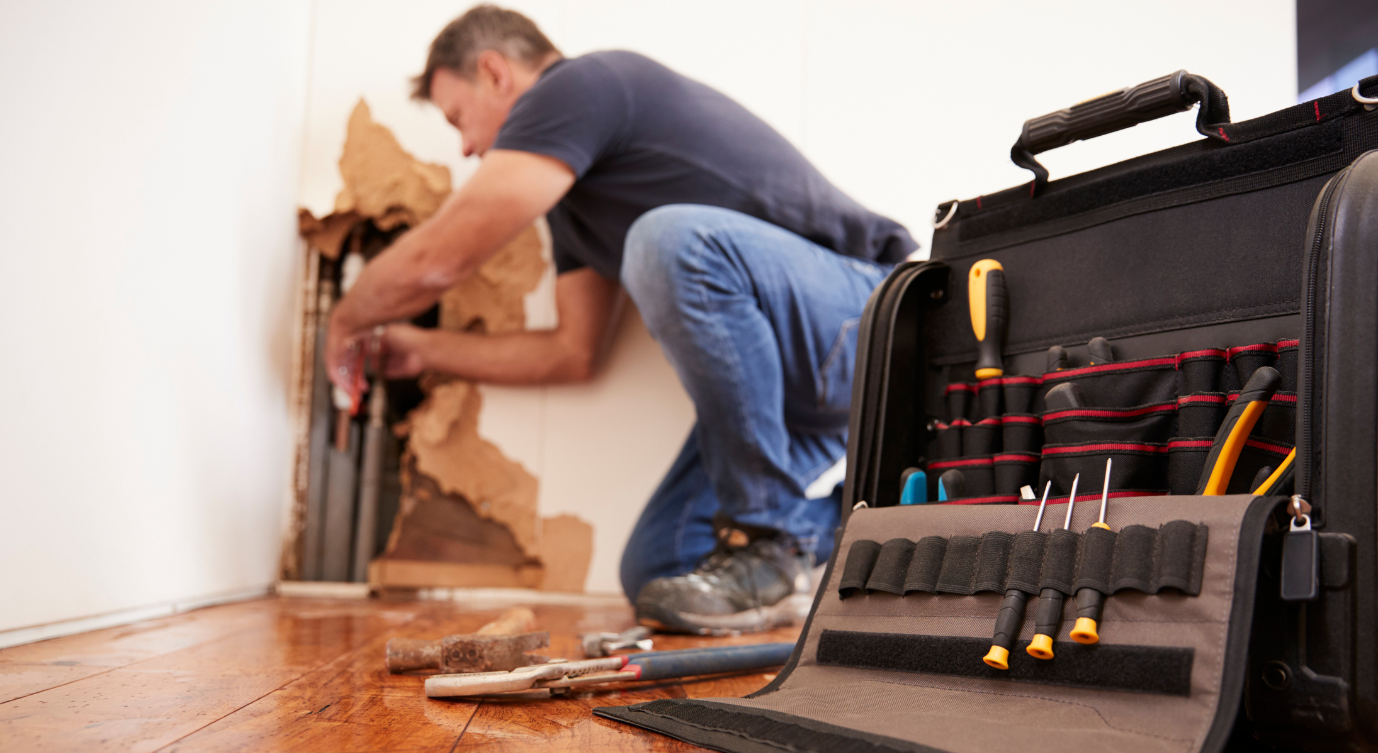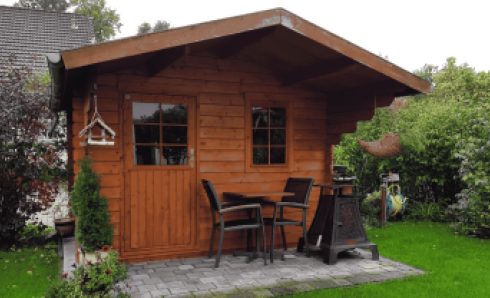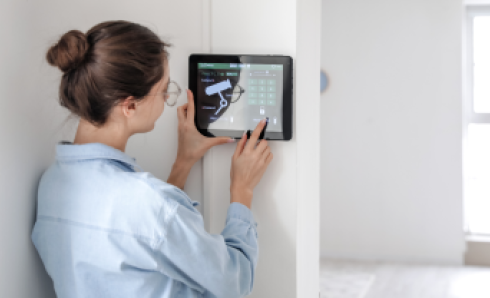A burst pipe in the home isn’t something to mess around with. When water starts pouring in, it’s essential to take immediate steps. Otherwise, a serious problem can quickly turn into a catastrophic one.
Burst piping can result in extensive water damage and costly repairs. In Ireland, where weather conditions can rapidly change - and a little rain here and there isn’t unheard of - understanding how to respond to such incidents is crucial. This article will guide you through nine essential steps to manage and mitigate the damage caused by burst pipes, emphasising why prompt action is vital.
What are the Most Common Causes of Pipe Bursts?
Pipe bursts can occur for several reasons, often without warning. Understanding these causes can help homeowners take preventive measures and react more effectively when disasters strike.
Freezing Conditions
In Ireland, freezing temperatures are a common cause of burst pipes. Water expands as it freezes, increasing pressure inside the pipes. If the pressure is too much for the pipe to contain, it bursts.
Insulating your pipes is a crucial step to prevent such occurrences. Pipe insulation acts as a protective sleeve that keeps the temperatures within the pipes stable, reducing the risk of freezing.
Excessive Water Pressure Straining the Pipes
High water pressure can strain your plumbing system and lead to bursts, so regularly checking your home's water pressure is essential.
Water pressure build-up can be caused by several factors, including:
- Pipe corrosion
- Cold weather
- Clogged drains
- Faulty taps
- Leaking pipes
- Build-up in pipes
Installing pressure-reducing valves can help maintain a safe water pressure level, safeguarding your pipes from excessive stress.
Corrosion and Wear Over Time
Pipes deteriorate over time due to corrosion and general wear and tear. Older homes with outdated piping materials like iron or steel are particularly susceptible. Regular inspections and replacing old piping sections can prevent unexpected bursts and maintain the integrity of your plumbing system.
The Irish government is still running a scheme offering grants to replace old lead piping, so if your home falls into this category, think about applying.
What are the Immediate Actions to Take After Discovering a Burst Pipe?
When you discover a burst pipe, acting quickly can significantly reduce the damage to your home. Here are the steps you should follow:
1. Shut Off Your Home's Water Supply
Immediately turn off the main water supply. This stops water from flowing through the burst pipe, preventing further damage. Locate your main water valve beforehand and make sure all household members know its location and how to use it. Every home is different, but you can usually find your main water valve in one of the following areas:
- Inside a hot press / airing cupboard on the ground floor of your home
- Inside a utility room or garage
- Under the stairs
- Under a bathroom sink on the ground floor of your home
- Inside a kitchen unit/cupboard / press
- Inside a boiler house
- Where a gas pipe enters your home
2. Turn Off Electricity in Affected Areas
If the water from the burst pipe has the potential to come into contact with electrical appliances or outlets, cut off power to those areas. Call an electrician if you are unsure or unable to reach your electrical panel safely. Don’t take the chance to do it yourself if you don’t know what you’re doing. Electricity and water together can be deadly.
3. Identify and Protect Salvageable Items
Move items that have not been damaged by water to a dry area. For those that are wet, begin cleaning and drying processes immediately to prevent further damage or mould.
4. Assess and Mitigate Water Damage Quickly
Quickly assessing the extent of water damage can help in effective clean-up. Begin drying out affected areas with fans and dehumidifiers. In severe cases, consider hiring professional water removal services.
5. Remove Standing Water
If you have any standing water in the home, removing it as quickly as possible is a must, as it can lead to several unwelcome problems, such as:
- Mould
- Structural damage
- Clogged drains
- Electrocution
- Disease
- Slips & falls
- Mosquitoes (Yes, even in Ireland)
Use pumps or vacuums designed for water removal, and thoroughly dry all affected areas.
6. Contact a Professional Plumber
Speed is of the essence when it comes to burst pipes, so it's always a good idea to do it yourself as quickly as possible, if only to turn off the main water supply.
However, when it comes to actually fixing a burst pipe, contacting a professional plumber is advisable for significant damage or complicated repairs. Don’t start pulling out piping if you have no idea how to put it all back in.
Ensure that any plumbers you call are certified and have good reviews or referrals, and don’t be afraid to call a few if you think you’ve been quoted an unfairly high price.
7. Perform Temporary Fixes and Emergency Repairs
Sometimes, it might take a day or two before the plumbing cavalry arrives. In the meantime, apply temporary fixes like pipe patches or clamps to manage minor leaks until professional repairs can be made. These solutions can help minimise damage in the short term.
Again, if you’re a complete plumbing newbie, none of this will make much sense, but you’d be amazed at how much you can learn on YouTube in just 30 minutes.
8. Document the Damage for Your Insurance Claim
Take photos and keep records of all damages and repair efforts. This documentation will be crucial when dealing with your insurance company. Here are some important points to consider before moving on to the filing itself:
- An accurate timeline of events
- Evidence (photographic or video of the affected areas)
- A detailed description of what’s happened and how
- A Pulse number if the loss or damage has been reported to the Gardai
9. File Your Insurance Claim
Contact your insurance provider to start the claims process. Provide all necessary documentation and follow up regularly to ensure your claim is processed efficiently.
How to Prevent Future Pipe Bursts in Your Home
Preventive measures can significantly reduce the risk of future pipe bursts.
1. Insulating Pipes to Protect Against Freezing Temperatures
Insulating exposed pipes, especially in unheated areas of your home like attics or garages, is an effective way to protect against freezing.
2. Regularly Monitoring Water Pressure to Avoid Overstrain
Installing a water pressure gauge can help you monitor and adjust the pressure as needed, preventing strain on your pipes.
3. Scheduling Annual Inspections with a Professional Plumber
An annual plumbing inspection by a professional can identify potential issues before they lead to serious damage.
Ensure Your Home is Protected with 123.ie Insurance
Understanding and implementing these steps can significantly mitigate the effects of a burst pipe. By preparing in advance and knowing how to respond effectively, you can protect your home, reduce potential damage, and ensure your family's safety.
For complete peace of mind, consider protecting your house and everything in it with a comprehensive home insurance policy covering water damage. 123.ie offers policies tailored to suit all circumstances and needs, ensuring financial protection against pipe bursts and related damages.





